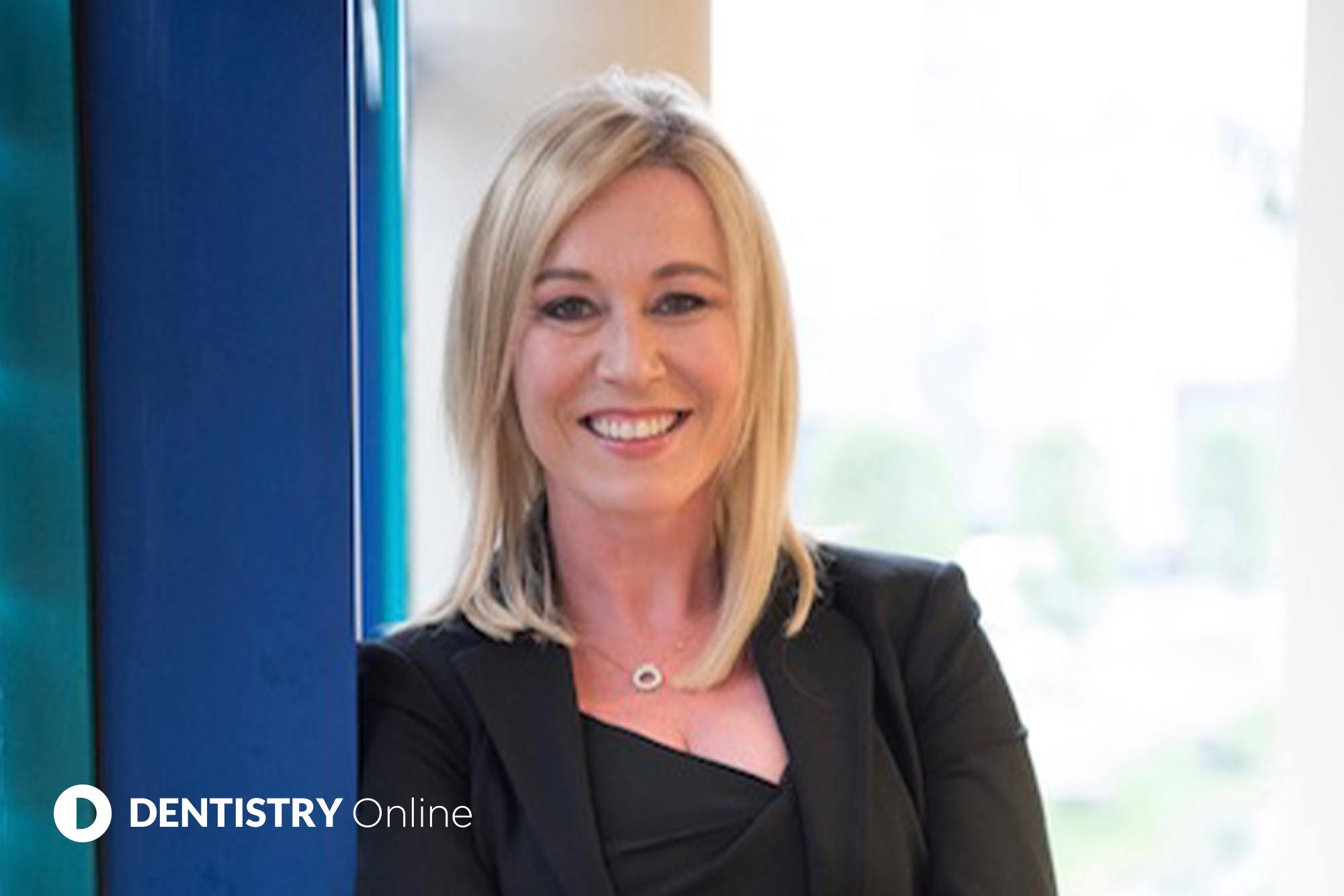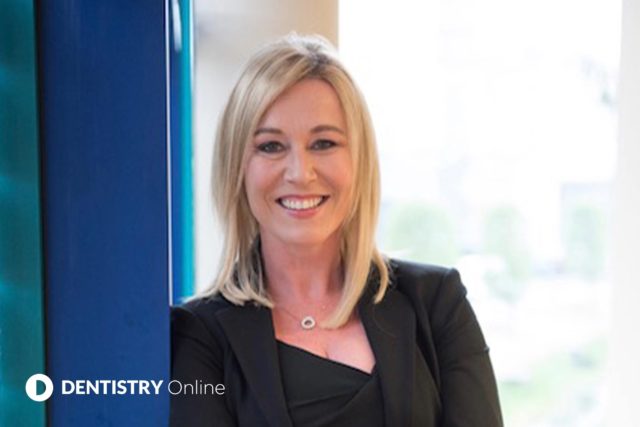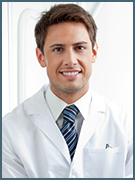 Sinead McEnhill talks to Siobhan Hiscott about implant dentistry, life after COVID-19 and her love of lifelong learning.
Sinead McEnhill talks to Siobhan Hiscott about implant dentistry, life after COVID-19 and her love of lifelong learning.
Tell us a bit about yourself
I’m a busy mum of two boys and two girls, who does dentistry on the side. I’m now 25 years in, but I figured out early on that I get bored easily. I decided I should adopt as much learning into my career as possible. That remains my focus: to treat my patients ethically and knowledgably. It’s only when you realise how much is out there that the realisation dawns that you know so little.
Why did you choose to become a dentist, and when did you realise you wanted to focus on dental implants?
I chose to become a dentist after many years working as a teenager in my dad’s dental practice. I was the cleaner for three years and a dental nurse every summer. Fortunately, the General Dental Council didn’t regulate child labour at that time. It seemed the most normal thing in the world to me. I seemed very able to chat to anyone about anything.
When did you decide to do implant dentistry?
Dental implants became my focus after placing my first implant six months into my VT year. An early adopter of implant dentistry, my boss encouraged me to try every possible case before I was a few years out of university. I don’t think I slept for fear most of that VT year!
The great thing was the fact that I learnt quickly. I was afraid of very little at the end of my time there.
When I opened my own practice in 2003, I began external training on the RCS(Eng) Implant Diploma, where I was one of the first two females to gain that qualification. After that, I worked as a tutor on the same course, which launched my enthusiasm for sharing knowledge and teaching.
What’s your favourite aspect of implant dentistry?
I love the process of solving a puzzle, assembling a treatment plan right from inception with the patient’s concerns and expectations as the starting point, through to execution of all of the many varied components of treatment. The satisfaction, however, always is maximum when you see the patient reaction at the end, knowing their life has been impacted in such a positive way. The rapport, emotional honesty and trust that goes into that is what it’s all about for me.
Implant dentistry offers such a broad range of avenues for a patient, very often in combination with multidisciplinary aspects such as orthodontics and aesthetic dentistry.
In recent times, the digital revolution has massively improved the ability to communicate these options to patients.
This has both complicated life and created excitement for me. With the joy of managing the emotional impact on the patient due to the greater visualisation and predictability of outcome… this is only complicated by the fact that my own clinical skills need to be second to none in ensuring the skills at my disposal are good enough to create such a result. Hence, the learning can never end. That’s the day I retire.
What challenges have you overcome on your dental journey?
Challenges come along pretty often when you run a busy implant practice. But COVID times have caused the biggest stress to the practice, in terms of the wellbeing of team members and finances to a totally unsupported business through four months of no patients.
Never have I felt this amazing profession seem so undervalued by government. People we assumed had the backs of private dentistry were less than unconcerned about our plight.
Working hard to mitigate risk and comply with every safety precaution has been tough but worth it to get back to semi normality.
What’s been your biggest professional success?
Professional success to me comes daily when you are trusted enough by your peers for them to refer their patients. External to that, it comes in different forms… personal and team-based.
Personally, attaining recognition by peers for your work is rewarding. The Aesthetic Dentistry Awards is anonymised, and is judged without bias. While both Belmore practice and team have won many national awards for their efforts over the years, my personal award as the first female to win the Implant Multiple Award at the Aesthetic Dentistry Awards stands up there as a proud moment indeed.
Also winning highly commended Best Aesthetic Practice is testament to my team and their hard work, and the care and attention to our patients.
Do you have any regrets?
Not many, but I do wish I’d bought all my digital technology so much earlier. It seems unfair to have unknowingly kept it from my patients. Then, I suppose there’s only so many weeks in a year to learn.
Who’s been your greatest mentor?
My greatest mentor has to be Ashok Sethi. His methodical and evidence-based teaching on the RCS Diploma really sculpted my outlook. His approach to predictability at all times has always been instrumental in every decision I make. It’s just the clinical acumen you have to learn after that, which is a lifelong effort.
Clinicians I admire hugely and have learnt most from in recent years include Istvan Urban, Howie Gluckman, Edward Pat Allen, and Tiziano Testori. They make growing bone and soft tissue miraculously achievable.
How has lockdown affected you?
Lockdown has been a torture to me and I’m sure to anyone who loves their job. Worry about the business, patients and staff were in equal measure. Particularly with the confusion of the message reception.
What did you learn about yourself during lockdown?
I learnt grit and determination to move past the stress and take matters into my own hands to get things back on track. Including early purchase of air filtration and PPE. Fortunately, with longer appointment spacing in a typical implant practice, there was less concern about long fallow times.
How do you see things changing as a result of COVID-19?
Undoubtedly, things are moving to more private based care. The vast majority of my new patients have come from an NHS setting where their dentist has still not opened their doors and sheer frustration has forced them to find an alternative.
A large demand for aesthetic treatments, both teeth and facial aesthetics, makes me think people spent a lot of time looking at themselves on Zoom calls and figuring they could improve themselves.
Implant cases have been coming in greater numbers also with increased acceptance levels. Again I suspect the nest egg is being spent on themselves rather than the holiday that got cancelled.
What does the future hold for you and the practice?
It’s the same as ever for me and the team: learn something new every day, make your patients’ lives special by meeting you.
Of course, I always want the latest technology and new clinical tricks, but with fear of travelling and green zones changing almost daily, it seems I need to be patient for once.
This article first appeared in Implant Dentistry Today magazine. You can read the latest issue here.
Let’s block ads! (Why?)






